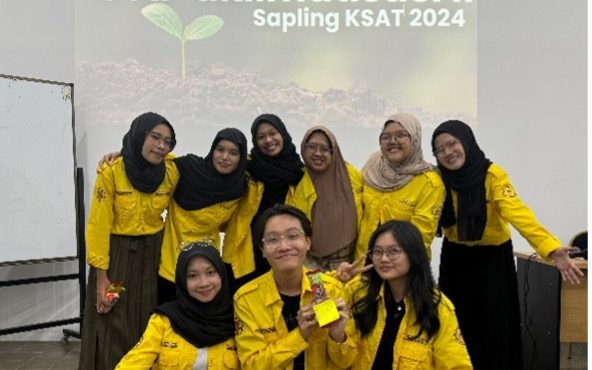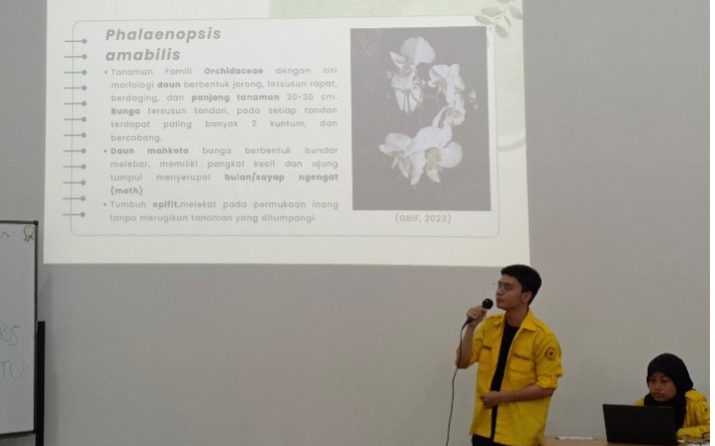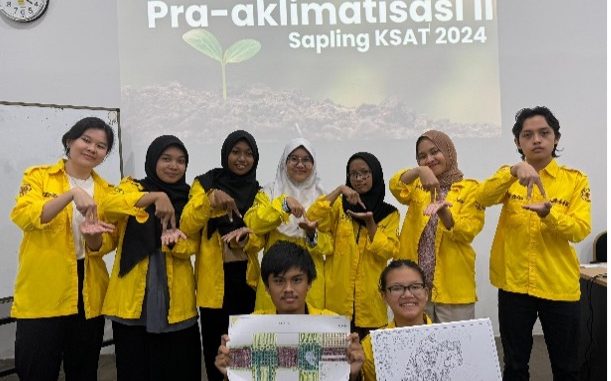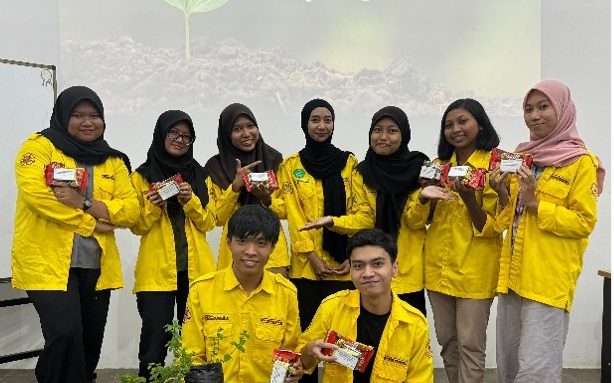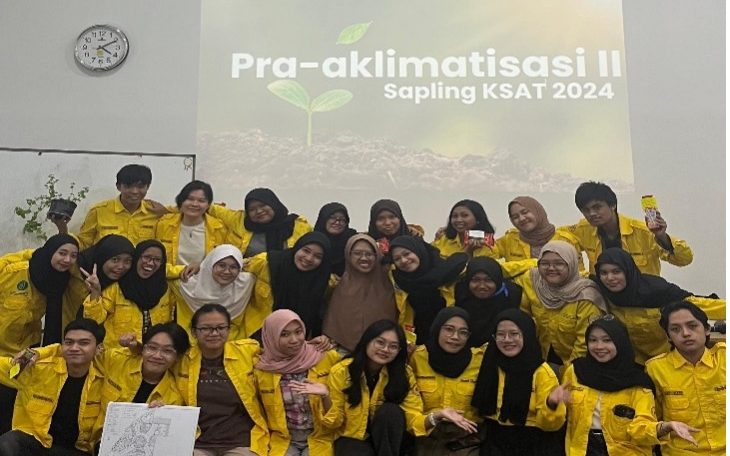On Saturday, June 8, 2024, the Garden Architecture Study Group (KSAT) held the Pra-Acclimatization II 2024 event as part of the KSAT scientific activities series to enhance members’ understanding and skills in garden architecture, plant diversity, and landscape ecology. The activity was designed for Sapling-level members and held in Room X Faculty of Biology UGM. During Pre-Acclimatization II 2024, Sapling members had the opportunity to apply the knowledge they had acquired by preparing papers and site plans tailored to the focus of each subdivision.
The event began with the preparation of papers and site plans by Sapling members. The Plant Diversity Subdivision worked on garden projects and their physiological stresses, the Landscape Architecture Subdivision developed city park site plans, and the Landscape Ecology Subdivision generated ideas for ecological-based gardens. The results of these assignments were then presented at the main event, providing a platform for members to share knowledge and receive feedback. This process will enhance their understanding and improve their ability in scientific writing and architectural planning.
The event opened with a welcome from the Master of Ceremony, Adelia Adriani (KSAT 2021), followed by opening remarks from Anggi Nada Khoirul Ummah, the Head of KSAT Cabinet Magnolia, and Laksita Chesarina, the Coordinator of the General Scientific Division. The main agenda was the presentation of assignments from each subdivision, where members detailed their projects. After the presentations, a discussion and Q&A session was led by panelists, providing members with feedback and allowing for deeper interaction and understanding.
Another goal of Pre-Acclimatization II 2024 is to provide an interactive and in-depth learning platform for Sapling members. Through this event, KSAT aims to facilitate the development of members’ skills in various aspects, including scientific writing, site plan preparation, and scientific presentations. Additionally, the event is expected to strengthen collaboration and communication among members, enrich the learning experience, and motivate them to continue developing their knowledge in garden architecture, plant diversity, and landscape ecology.
Author: KSAT 2024*

